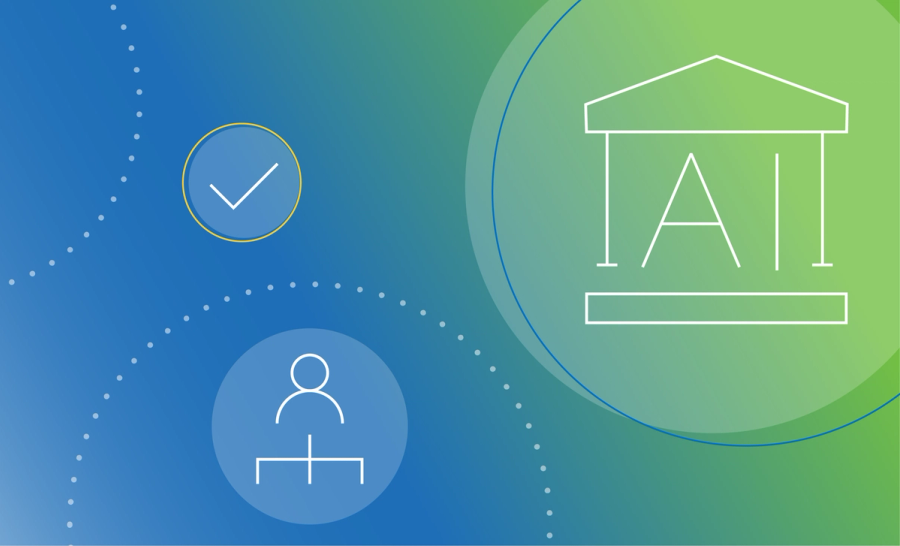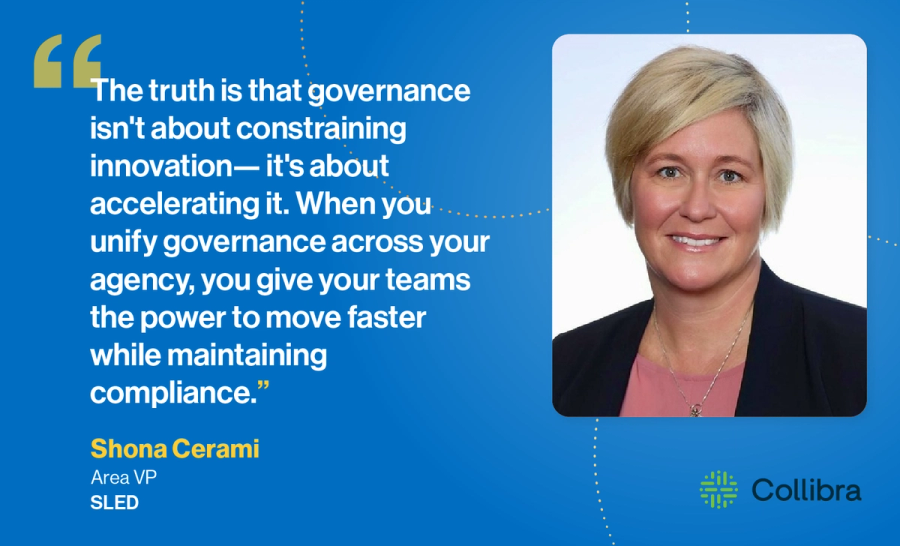Data quality, data governance and the future of government

Today, data is the foundation of decision-making, innovation and governance. For government agencies, the reality is high-quality data is essential for successfully deploying technologies like machine learning (ML) and generative AI (GenAI) and, ultimately, providing better services to the public.
A recent report by NASCIO (the National Association of State CIOs) and Ernst & Young (EY) reveals a concerning gap: while 95% of state CIOs and Chief Data Officers (CDOs) acknowledge that AI will heighten the need for strong data management, only 22% have implemented a dedicated data quality program.
This disparity underscores a broader issue: recognizing the importance of data quality is not enough without the structures to support it. The absence of data quality often reflects a lack of robust data governance. And the reality is, without proper governance in place, maintaining consistent, high-quality data will remain out of reach.
Learn more about Collibra Data Quality & Observability, Collibra Data Governance and Collibra AI Data Governance.
Data quality helps preserve public confidence
The old saying, ‘Garbage in, garbage out’ has always been true for data management and, with the recent demand and interest in GenAI, it’s only more relevant to public sector data professionals.
Developing AI applications? High-quality data is the foundation for success. Without it, AI outputs can become biased, inaccurate or incomplete, ultimately eroding public trust in the technology. Data also plays a crucial role in improving operational efficiency. Accurate Geographic Information System (GIS) data, for example, ensures that 911 dispatchers send first responders to the right locations. While some data, like aggregate trend information, may not require the same level of precision, it still plays a vital role in informing broader decision-making. High-quality data not only reduces errors; it streamlines processes, enhancing the delivery of essential public services.
Moreover, governments handle vast amounts of sensitive data, including personal information (PI) and personally identifiable information (PII), which must be managed with care and in accordance with applicable regulations. Maintaining high standards for data accuracy, privacy and security is not just a technical necessity but a critical component in preserving public confidence.
Data quality challenges
Despite its importance, maintaining high data quality is often easier said than done. The NASCIO report highlights several key challenges that state agencies face:
- Lack of skilled personnel: There is a shortage of professionals with the necessary skills to manage and improve data quality effectively. Roles such as data stewards, data quality analysts and master data management experts are in high demand but often in short supply.
- Budgetary constraints: Although data quality is widely acknowledged as important, there is often a misalignment between its perceived importance and the budget allocated to it. This misalignment can hinder the implementation of comprehensive data quality programs.
- Siloed data management: In many state agencies, data management efforts are fragmented, with different teams applying their own standards and methods. This leads to inconsistent data quality across departments, making it difficult to integrate and trust data on an enterprise level.
To address these challenges, robust data governance frameworks are essential. Data governance provides a structure for ensuring data quality through standardized practices, clear roles and ongoing monitoring. By integrating data governance, agencies can create enterprise-wide data quality programs that prevent the siloing of data management efforts.
Data quality and the future of government
For government agencies to truly benefit from high-quality data, they need to adopt scalable solutions that can be applied across various departments.
NASCIO’s report recommends 9 best practices, including:
- Creating a data governance framework
- Applying robust metadata and data-cataloging capabilities
- Selecting the right tools to streamline data quality
Additionally, NASCIO says that agencies should prioritize their data quality initiatives by focusing on critical data elements that align with broader state objectives, such as public safety, housing and education.
Learn more: Four steps for ensuring reliable data: How CDAOs can improve decision making
As government agencies continue to adopt AI, the need for high-quality, well-governed data will only increase. Addressing the current gaps in data quality programs and aligning budgetary resources with the importance of data quality will be essential for governments to deliver accurate, trustworthy and efficient services to the public.
Data governance and data quality are not just about improving operations; they are an essential foundation for a more responsive, reliable and future-ready government.
Learn more about Collibra Data Quality & Observability, Collibra Data Governance and Collibra AI Data Governance.
In this post:
Related articles

AIJuly 15, 2024
How to observe data quality for better, more reliable AI

AIJune 12, 2024
Understanding the OMB Memorandum and AI Governance

Public SectorJanuary 31, 2025
From fragmentation to confidence: A strategic guide to the 2025 state regulatory landscape

Data QualityDecember 20, 2022
Smarter, cleaner, faster: AWS + Collibra help government make better decisions
Keep up with the latest from Collibra
I would like to get updates about the latest Collibra content, events and more.
Thanks for signing up
You'll begin receiving educational materials and invitations to network with our community soon.
